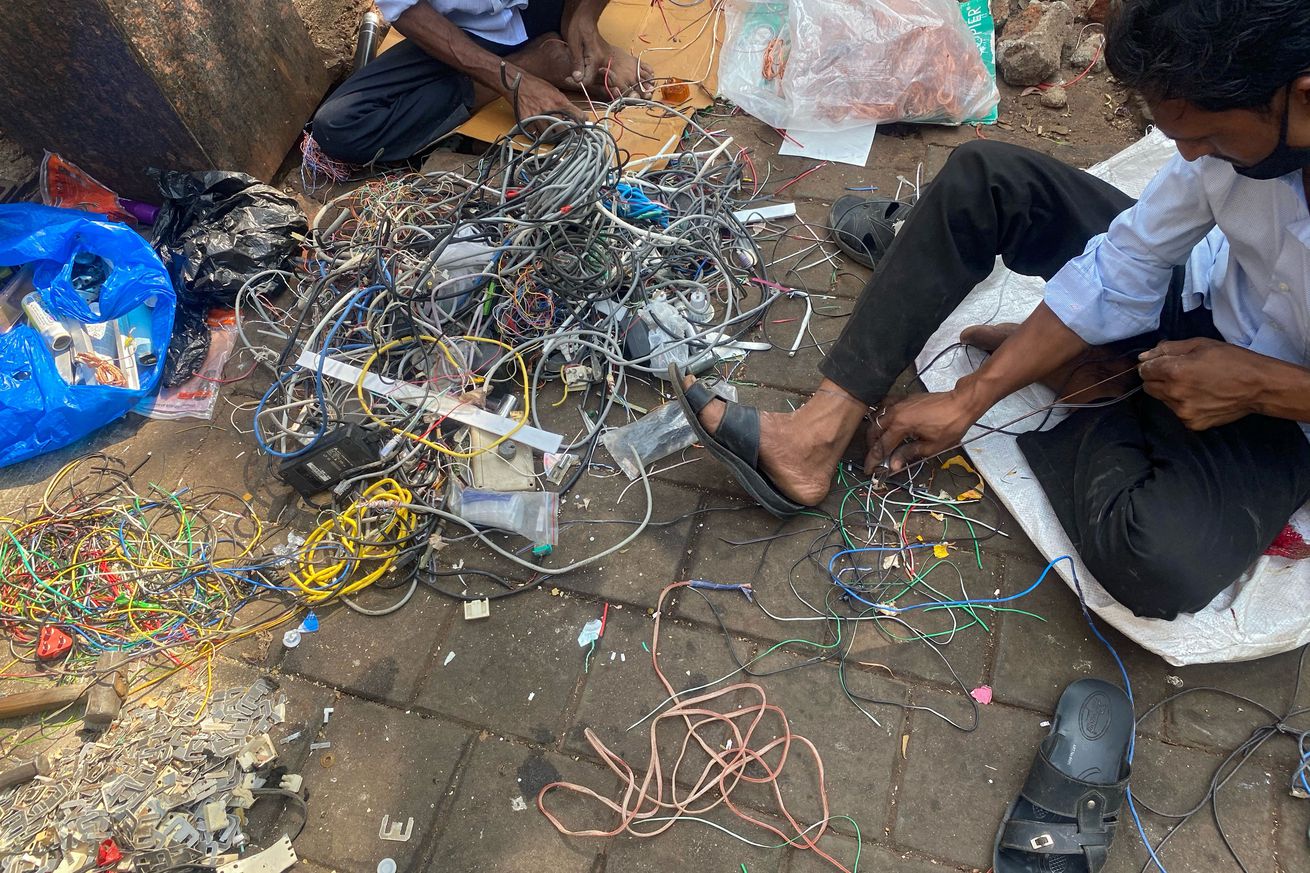Scrap dealers retrieve copper from discarded electric and computer cables to sell at a roadside stall in Mumbai on March 21, 2021. | Photo by INDRANIL MUKHERJEE/AFP via Getty Images
We now have evidence that staying home to game or stream and chill during the pandemic was pretty much a first-world problem (or privilege, depending on how you look at it). The proof is in a new report published today by the United Nations University and UN Institute for Training and Research that looks at where drops in electronics sales and associated e-waste took place.
The report looked at electronics consumption in the first few quarters of 2020, and then used that to estimate future e-waste. It projects that worldwide, we’ll have discovered that 4.9 million fewer metric tons of e-waste were generated compared to a “business as usual” scenario without the pandemic. But that drop was uneven…


